Beth Kephart's Blog, page 214
November 6, 2011
Standing Still/Kelly Simmons: Reflections
 Kelly Simmons wastes no time in her fast-paced, high-impact first novel, Standing Still. Readers of this blog know how much I loved the author's second novel, The Bird House. It was only a matter of time (or finding the time) before I wound my way toward this story about a mother of three who, within the opening pages, discovers a kidnapper in her daughter's bedroom and begs him to take her instead.
Kelly Simmons wastes no time in her fast-paced, high-impact first novel, Standing Still. Readers of this blog know how much I loved the author's second novel, The Bird House. It was only a matter of time (or finding the time) before I wound my way toward this story about a mother of three who, within the opening pages, discovers a kidnapper in her daughter's bedroom and begs him to take her instead.He agrees.
Over the course of the next week, much of it spent in a motel room, Claire and the kidnapper live a strange and at times strangely beautiful life. Or, at least, an increasingly honest life, as the motivation for the kidnapping becomes ever clearer, and ever more hallowing. Claire is a woman who suffers from acute panic disorder. She is a woman not entirely certain that she is loved by the man who must summon millions of dollars to set her free. She is a woman bearing the burden of a heartbreaking past.
It is Simmons's remarkable talent for layering the high suspense of the kidnap within a rich exploration of intimate wounds and maternal secrets that wholly distinguishes this novel. It is the clarity and precision, humor and surprise embedded within the language that kept me reading this novel late into last night, when I myself was in a foreign room (though in the very good company of my husband). Lately (after reading The Bird House) I have had the chance to discover that Kelly Simmons, in person, is as extraordinary as she is on the page—smart, careful, genuine, very funny (absolutely), complex, and searching. The real deal, in other words, and I cannot wait to read whatever else Ms. Simmons now has brewing.




Published on November 06, 2011 13:19
November 5, 2011
Sometimes I write about what I see.
 Lately I have been writing about this.
Lately I have been writing about this.I won't be reading or writing today, though, for something even better is happening: A visit with my son.
A happy brisk weekend to you all.




Published on November 05, 2011 06:44
November 4, 2011
Shake Me For Service: National Novel Writing Month and a Challenge from Yours Truly
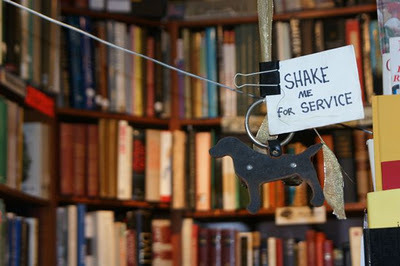 National Novel Writing Month bills itself as "thirty days of literary abandon." I like that. I would like to add, as someone who stands in supreme awe of anyone who can write 50,000 words in a single month, that NaNoWriMo is a challenge for the extremely brave, the highly disciplined, and the bold of heart. Within this month, entire worlds will be created, characters revealed, plots escalated. As someone who can get caught in the tangle of a single paragraph for hours (okay, sometimes days) I do not know how this gets done.
National Novel Writing Month bills itself as "thirty days of literary abandon." I like that. I would like to add, as someone who stands in supreme awe of anyone who can write 50,000 words in a single month, that NaNoWriMo is a challenge for the extremely brave, the highly disciplined, and the bold of heart. Within this month, entire worlds will be created, characters revealed, plots escalated. As someone who can get caught in the tangle of a single paragraph for hours (okay, sometimes days) I do not know how this gets done.The point of NaNo is to get a first draft done. To make the broad strokes, to test an idea. But what happens after those first 50,000 words are inked (or dotted), is, in my mind, even more crucial. It's during revision that the music of a story is found, the real meaning, the finer possibilities. It is during revision that the actual story emerges.
I care perhaps too much about language. I want to take risks with it, yearn to push it. I will write, for example, an Emmy character in You Are My Only who doesn't speak with ordinary cadence and doesn't read the world through cliches, because I think we have a responsibility as writers not just to tell stories, but to try to tell stories artfully, with originality and daring. I will spend ten years working the sentences of Small Damages because I cannot let those gypsies, that south of Spain, that music, that old cook down. I recognize that I am in a growing minority. I recognize that what is art to me could be just so many plot-obstructing words to another. I recognize that my passion for words, my own preference for authors who make sentences that are not just compelling and clear, but startling and fresh, is Beth showing her quirky stubborn side.
Still, I am in that constant hunt for a real writer writing. I will fill my shelves with Julie Otsuka, Julian Barnes, Michael Ondaatje, Anne Enright, William Fiennes, Chloe Aridjis, Kim Echlin, Jane Mendelsohn, Ron Hansen, Colm Toibin, Colum McCann, Per Petterson, and so many more (and here I have purposefully not included any of my friends, so that you can be assured I am being completely objective) because I am inspired and informed and given hope by their commitment to the pure, hard jewel of the single sentence.
It has taken me four paragraphs to get to the point. My point is this. I am running a contest. I am seeking, from the NaNo writers, this: A single sentence as it was first written in the heat of a NaNo moment, and that same sentence after it has been reconsidered, revised. Please send your entries to kephartblog AT comcast DOT net before December 20. I will list my favorite transformations here and give the winner a signed copy of either a You Are My Only hardcover or an ARC of Small Damages, my novel due out from Philomel next July. (The winner will choose.)
I hope that those of you who are so inclined will help me spread the news.




Published on November 04, 2011 08:14
November 3, 2011
I am reading
Published on November 03, 2011 19:06
Becca and her Bookstack, Beth and her Fiction
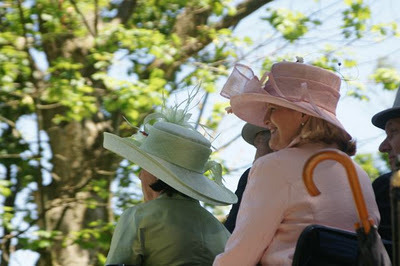 Two years ago now I started a novel for adults, a book that I thought I'd finished last March, until I started it all over again. Almost every single thing about this book has changed, but my protagonist's first name has not. She is and she always will be Becca, a name I love, a name I feel particularly close to, thanks to my friendship with Becca of the hugely wise and always calming book blog known as Bookstack. Becca reads fine books and she tells us what she thinks—honestly, without rancor. Many, many of my own book purchases have been made in the wake of a Bookstack review.
Two years ago now I started a novel for adults, a book that I thought I'd finished last March, until I started it all over again. Almost every single thing about this book has changed, but my protagonist's first name has not. She is and she always will be Becca, a name I love, a name I feel particularly close to, thanks to my friendship with Becca of the hugely wise and always calming book blog known as Bookstack. Becca reads fine books and she tells us what she thinks—honestly, without rancor. Many, many of my own book purchases have been made in the wake of a Bookstack review.Today I am blessed to be featured on Becca's Bookstack, with a truly generous review of You Are My Only . The odd thing about this is that I had planned to write about Becca here today. Planned to release this small excerpt from the novel that bears her name. I am but 26,000 words into this utterly redesigned book. I am writing slow, letting the story find me. But here is Becca, a snatch of fiction, surely, but written with the sense of an angel close behind me as I write.
In Siena she drank the Chianti Vin ordered. She walked beside him, down the crowded streets, in the shuffle between shops and bicycles and flower vendors, rounds of cheese, painted porcelain, trays of marbled paper. She walked among the bright silk flags that marked out each contrade—Unicorn, Snail, Caterpillar, Goose, Tortoise, Dragon, Eagle, Ram, Owl, Shell, Porcupine, Giraffe, Wave, Wolf, Panther, Forest, Tower—each with its own emblem and history of pride. The colored silks hung from poles and windows. They were draped across the shoulders of women and wrapped around the heads of men, and in every contrade, Vin bought Becca a scarf and knotted it around her waist until she wore a skirt of all Siena, and when the wind blew the colors flew up into her frames. She photographed second hands and steeples.She photographed herds of butterflies.She photographed Vin asleep, Vin in the window, framed by the quivering moon.




Published on November 03, 2011 04:56
November 2, 2011
Why do I?
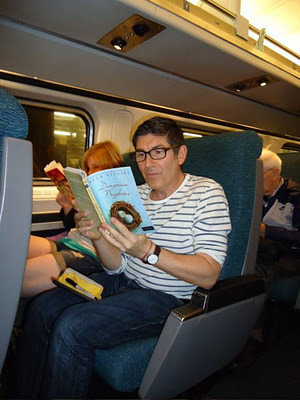 I had one of those days yesterday (they come on me from time to time) when I asked myself some serious questions about the writing life. Does it matter, this thing that I do? Would life be simpler, less angst-producing, less panic stricken, altogether more orderly and calm, if I stopped writing stories down in favor of living more fully? Have I, in the end, achieved what I set out to achieve—or did I ever actually have a plan? What should I have done that I didn't do? What is still possible? Why, after all these years, is writing so hard? I write young adult novels (among other things), but I don't write typical young adult novels, as the gorgeous (inside and out) Booking Mama so poignantly points out on her blog today. I care a lot about the sort of things that many readers pass right by. I once tried to write a book that shimmered with big-time commercial possibility. I failed. Miserably. For the life of me I do not know how such a thing gets done.
I had one of those days yesterday (they come on me from time to time) when I asked myself some serious questions about the writing life. Does it matter, this thing that I do? Would life be simpler, less angst-producing, less panic stricken, altogether more orderly and calm, if I stopped writing stories down in favor of living more fully? Have I, in the end, achieved what I set out to achieve—or did I ever actually have a plan? What should I have done that I didn't do? What is still possible? Why, after all these years, is writing so hard? I write young adult novels (among other things), but I don't write typical young adult novels, as the gorgeous (inside and out) Booking Mama so poignantly points out on her blog today. I care a lot about the sort of things that many readers pass right by. I once tried to write a book that shimmered with big-time commercial possibility. I failed. Miserably. For the life of me I do not know how such a thing gets done. For a long time I sat in a quiet place thinking about these things. I'd hear the ping of email coming in from across the way, but I didn't rise to find the news. Finally, feeling no less good or smart for all my mental meanderings, I returned to my desk, opened my email, and was forcefully reminded of why I am still, after all these years, a writer. Because I cannot help myself, for one thing. And because my life would be bereft without the many kind and intelligent souls that writing ushers in.
Yesterday my email was full of saving graces. You, you graces, know who you are (Julie P., you are pure grace, too), and how grateful I am. Among the emailers was one James Lecesne—author, actor, activist, man of great heart—who wrote to say that he would be coming into town today to share his remarkable documentary film "After the Storm" at the offices of one forward-leaning law firm. Maybe we could get together beforehand, James said. Absolutely, I thought. Absolutely. And so today, that's where I'll be—downtown breaking bread with James, a man I'd have never had the privilege of meeting had it not been for books and book festivals and a shared interest in writing stories that are invested in language and spring from the heart.




Published on November 02, 2011 02:28
November 1, 2011
Some things (like making graduation plans for your son) are just not possible
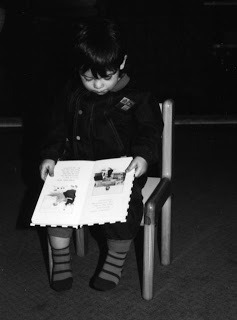 We made hotel reservations today for our son's college graduation. It had to be done. As it is, the rented rooms are forty minutes from the college town.
We made hotel reservations today for our son's college graduation. It had to be done. As it is, the rented rooms are forty minutes from the college town. But I was avoiding the topic—preposterously thinking that if I didn't pay attention, this thing wouldn't come to pass. That this child of mine—so loved, so dear, so smart—would not take yet another step away from the childhood I treasured. I've just wanted time to stop.
But it does not, and we have made our reservations, and I will be a proud, emotional, grateful mother in that graduating mix next May. I will be there, but when those caps get tossed, I don't expect to be able to see.




Published on November 01, 2011 10:33
Kidnapping in YA: The Live Chat
 A few weeks ago, Alison Weiss of Egmont USA wrote with an idea. Why not conduct a live chat with readers? Why not, indeed, find a time when both Kristina McBride (The Tension of Opposites) and I could sit down for an hour for a moderated conversation conducted within the Cover It Live forum?
A few weeks ago, Alison Weiss of Egmont USA wrote with an idea. Why not conduct a live chat with readers? Why not, indeed, find a time when both Kristina McBride (The Tension of Opposites) and I could sit down for an hour for a moderated conversation conducted within the Cover It Live forum?The question was asked. An idea was born. An evening was chosen.
Please join Kristina, Alison, and me for a conversation about what happens when you choose to build a story within the frame of a kidnapping. Did real-world headlines precipitate the story? Are we obliged, as storytellers, to work the sensationalistic angles? How much room can we make for language and heart and hope in a story that has such darkness at its start?
I'm really looking forward to the conversation, and I am very hopeful that you will find the time to join us. The facts and link below:
Kidnapping in YA: A Chat with Beth Kephart and Kristina McBrideWednesday, November 2, 20117:30 PM EDTChat with us at this link




Published on November 01, 2011 06:12
Lilian Nattel Makes My Day
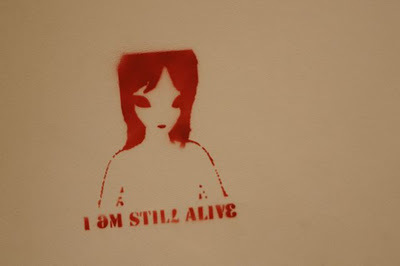 The older I get the less (certainly) I know and the less I also remember. (Indeed, I am at work on a memoir now, but for this one, I've taken notes all along the way—proof, I tell myself. Evidence.) But I do remember (I will swear on this) the first time I ever encountered Lilian Nattel's blog. She had written about that northern lights phenomenon, aurora borealis. She had posted (as she will) an extraordinary photograph. I'd spent a few months in northern Alberta as a kid, fascinated by those night skies, and so I was enthralled by Lilian's post. We're going to get each other, I thought.
The older I get the less (certainly) I know and the less I also remember. (Indeed, I am at work on a memoir now, but for this one, I've taken notes all along the way—proof, I tell myself. Evidence.) But I do remember (I will swear on this) the first time I ever encountered Lilian Nattel's blog. She had written about that northern lights phenomenon, aurora borealis. She had posted (as she will) an extraordinary photograph. I'd spent a few months in northern Alberta as a kid, fascinated by those night skies, and so I was enthralled by Lilian's post. We're going to get each other, I thought.And so we have. We read with equal fervency. We opine on the things we see. We take our cameras out for walks. We threaten to go ice skating together. She's a Canadian and I'm a Pennsylvanian. But there is much that we share. When I read her novel The River Midnight, I knew we'd be friends for a long time. When I follow her journey toward publication of her new book, Web of Angels, I feel as though I am preparing for a launch of a book of my own.
And so, Lilian, I am so very grateful to you for your beautiful and loving read of You Are My Only—for settling in with it so quickly, for sharing it with your daughter, for ushering in my yesterday with an early morning tease on Facebook. The next time I cross the Canadian border, I'm strapping on a pair of skates, heating up my thermos of tea, and looking for you.
(The photograph above was taken at the Philadelphia Art Museum, this past Sunday.)




Published on November 01, 2011 05:38
October 31, 2011
On Short Novels, The Sense of an Ending, and Julian Barnes

The pages of my copy of The Sense of an Ending, the gripping new novel by Julian Barnes, had not been cut. I had to slip my finger in between each one as I lay reading at the close of a snowy weekend. This pleased me greatly. The feel of the paper against my skin. The sound of a story unfolding.
I am always confused by critics of the short novel—by those who refer to the shorter novel as something lesser than. I remember a conversation with Alice McDermott (Charming Billy, That Night, At Weddings and Wakes), in which she spoke of writing the kind of stories she herself liked to read—shorter and more compact novels, densified worlds, intimate places, landscapes of measured, studied sentences.
Yes. Me, too. The short novel may or may not be about plot, may or may not be commercial (whatever that is). But when it is handled with the intelligence of an Alice McDermott or a Julian Barnes or a Julia Otsuka or a Kate Chopin or a Michael Ondaatje (Coming Through Slaughter) or a Chloe Aridjis or a Kathryn Davis or an Anne Enright, for example, I personally think there is nothing finer. Brilliant short novels have the impact of poems. They are, most often, shorter precisely because the writer has taken the time to banish the extraneous and diluting, the self-aggrandizing or -indulgent. There is a story to be told. There is its core and there are those things essential to its core. The brilliant writer of shorter novels holds that line, maintains his or her focus, goes blessedly deep, does not skip from this event to that—indeed, does not concentrate on "events" at all. Character and meaning, language and symbol, the ripe stuff. Brilliant short novels concentrate, primarily, on that.
I know many who would disagree, and that's the beauty of this literary community—the possibility of conversation, dissension. (And of course I have many beloved books on my shelf that run past 300 pages, though I will admit that I don't have many favorites that run past 450.) But I hope no one will disagree with me about this new book by Julian Barnes. From the first sentence to the last I hardly exhaled. The entire book was of such a piece that I felt certain that Barnes himself was sitting here, telling this story about a man, Tony Webster, resorting the memories of his youth. Webster had thought himself a regular-enough student with a regular-enough first love affair. He had gotten on with his life and lived it reasonably well. But when he learns that he has been remembered in a will in an odd and oddly disturbing way, and when, over time, he is presented with evidence of who he really was as a young man, he is staggered in the way that we all are staggered when presented with contradictions of our own fine self-opinion.
Barnes, whose Nothing to Be Frightened Of, is a fine and teachable book of nonfiction, puts his philosophical genius on full display in this novel, his great capacity for going deep. One example of many:
And so, for the first time, I began to feel a more general remorse—a feeling somewhat between self-pity and self-hatred—about my whole life. All of it. I had lost the friends of my youth. I had lost the love of my wife. I had abandoned the ambitions I had entertained. I had wanted life not to bother me too much, and had succeeded—and how pitiful that was.He also demonstrates his talent for plotting (yes, short novels have plots, too—it's just not what drives them), for surprise, for mystery, even. The Sense of an Ending is a rich story, a riveting one. If you haven't yet encountered Barnes, I suggest you start with this.




Published on October 31, 2011 03:52






